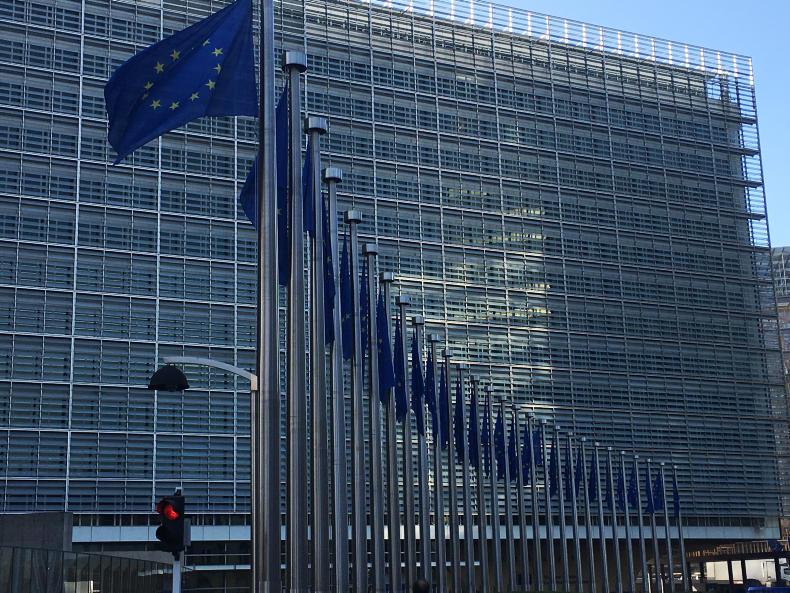Europe, South America and the global meat industry is still reeling from the meat scandal that erupted in Brazil last week.
Some 1,000 police raided 200 premises including global meat processing giants JBS and BRF SA as part of Operation Weak Flesh, which is an investigation into alleged bribery of health officials.
One of the startling things to emerge in a DG Sante briefing to the Comm Agri meeting on the Brazilian meat scandal was that they found out about it the same way as everyone else: through the press.
It was a day when farm leaders and MEPs were calling with almost one voice for a ban on Brazilian meat imports to the EU, pending investigation.
Unfolding of a scandal
Michael Scannell, director of food chain, stakeholder and international relations briefed the committee on how the issue unfolded. He said that they first learned there was an issue through press reports and they sent a note to Brazil asking for clarification and assurances that there were no risks to the EU as a result of these reports.
This was followed by intense diplomatic contacts over the weekend, culminating on Sunday with a meeting between the president of Brazil, the EU ambassador and the ambassadors of other major importing countries, to provide reassurance.
On Monday, DG Sante reviewed Brazil’s initial response to the concerns raised on Friday. In his words, they were not entirely happy with the assurance provided, and wrote again to Brazil asking for further clarifications.
Of the 21 premises referred to as under police investigation, four were on the EU-approved list and the EU has requested that Brazilian authorities remove this immediately. Brazil has also been asked by DG Sante to provide details of all the shipments from these four plants since the start of the year.
MEPs not impressed
All the MEPs that spoke in the subsequent discussion were of a general view that imports from Brazil should be suspended.
Northern Ireland MEP Diane Dodds expressed amazement at how the issue was uncovered through the press. She suggested that the EU needs to start again and review the entire system in Brazil, which could take a year or maybe two.
Luke “Ming” Flanagan asked why we should pursue a trade deal involving Brazil when we have already a massive trading relationship with the UK on our doorstep. Mairead McGuinness asked whether the Commission was aware of the concerns of parliament and pointed out that the issue damaged all meat products [in consumer eyes], not just those from Brazil.
What does this mean for Brazilian meat exports?
The absolute minimum cost to Brazil of this incident is the damage to its reputation. It secured access to the lucrative Chinese market in June 2015, at a time when Ireland had serious ambitions in that market. By November of that year, China was the biggest customer of Brazilian beef and has remained consistently among its top destinations (along with Hong Kong) since.
Approval to the lucrative US market followed in the autumn of last year – although, like Ireland, business has been slow to develop since approval.
Despite reports to the contrary, China has not imposed a ban on Brazilian beef: it has set aside Brazilian imports for detailed scrutiny. This is similar to what the EU is proposing.
If inspections reveal sub-standard product they will be in trouble. Conversations in European Parliament suggested that check won’t just be a glance into boxes, but will include salmonella and E coli testing, which will unearth less visible contamination.
The EU is clearly rattled at what has been unearthed in Brazil and how it came to their attention.
Will it create an opportunity for Irish exports?
There is a potential opportunity for Ireland at two levels.
First, if further testing leads to a ban on Brazil, it removes a major supplier of high-value hindquarter cuts from the EU market. Brazil shipped 140,566t carcase weight equivalent (CWE) to the EU in 2016. If this was not available, there would be an opportunity for another supplier, and Ireland would be well placed to fill the gap and upgrade its customer base.
The level of Brazil’s exposure to China is reflected, in that between it and Hong Kong they imported 32,000t of beef out of Brazil’s total of 87,000t of exports in the month of January this year.
It has been a long haul for Ireland to secure Chinese approval for beef, but this could create an opportunity to close that deal, irrespective of whether or not they actually ban Brazil.
It could just give them a fright on their level of exposure to Brazilian supplies and hasten their approval process for Ireland. We are already well established as a supplier of dairy and pig meat products, extending into the added-value infant formula where our reputation is second to none.
Caution
There may be a certain schadenfreude among some people about Brazil being called out for exporting inferior product.
However, as Ireland experienced with dioxins in 2008 and more recently horsemeat in 2013 – which ultimately was an EU problem though first discovered in Ireland – media attention has a habit of magnifying meat industry issues.
Ultimately, consumers are fickle and if a meat product has a damaged reputation, their first reaction is to stay clear of the product, rather than just paying close attention to where it comes from. Ireland has to be ready to avail of any market opportunity that arises, however it comes about – but we can never be complacent or over confident about our standards in the process.






 This is a subscriber-only article
This is a subscriber-only article










SHARING OPTIONS: